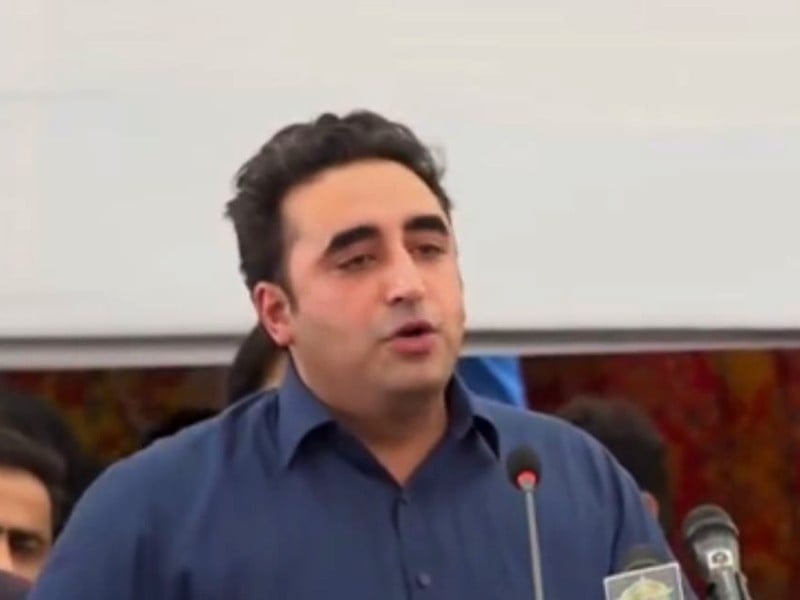ISLAMABAD: PPP Chairman Bilawal Bhutto-Zardari declared on Tuesday that his party was only accountable for its own position on the issue and that it was staying fast on its position about the formation of the new government.

Speaking to the media outside the Supreme Court (SC) after the Zulfikar Ali Bhutto presidential reference hearing, the PPP leader acknowledged that Pakistan was suffering from the current political unrest. However, he continued, the PPP aimed to complete the government formation process as quickly as feasible.
As stated by the chief justice himself, Bilawal claimed that the presidential reference was a “test” for the legal system. Calling the death penalty he received in 1979 a “judicial murder,” he believed that after all these years, the supreme court would rule in his favor.
The speaker expressed his hope that the judiciary will “wash itself off this stain, and overwrite the country’s history” and stated, “We cannot call it a bygone and say that we did not receive justice.”
He noted that his mother, the well-known former prime minister Benazir Bhutto, might not have received justice for her daughter. Speaking for himself, Bilawal asserted that his grandson would, nevertheless.
The PPP leader went on to say that difficulties don’t go away in a single day. The “judicial murder” of Bhutto took place in a dictatorship. Could the court’s ruling in the Bhutto case be considered “safe”? “If not, how do you solve a situation like this?” he said.
“I hope this presidential reference helps make up for what went wrong,” stated Bilawal.
The situation
On April 2, 2011, a reference was submitted by the former president Asif Ali Zardari seeking an advisory opinion from the Supreme Court regarding the possibility of reexamining the death penalty imposed on the former premier.
Under Article 186 (1 and 2) of the Constitution, which gives the president the authority to refer any matter of public concern to the Supreme Court for a ruling, the case was brought before the highest court.
An 11-judge panel led by Pakistan’s then-chief justice, Iftikhar Muhammad Chaudhry, heard the reference last in January 2012.
Bhutto was given the death penalty by a four-member Lahore High Court bench in March 1978; this decision was later overturned by the highest court. A seven-judge Supreme Court bench affirmed the sentence in March 1979 during the military rule of then-army head Gen. Ziaul Haq, voting four to three in favor of the ruling.











































